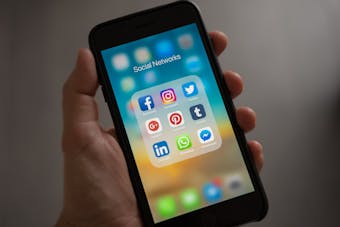We are hyperconnected. We live glued to our phones, computers, or tablets almost without realizing it. The statistics are striking: we check our phones more than 100 times a day, often automatically, out of pure habit. Have you ever unlocked your phone without even knowing why? You’re not alone.
Summer vacation is the perfect time to break this pattern and give your brain, eyes, and attention a well-deserved break. Because disconnecting isn’t just about leaving work or studies behind — it’s about creating space to truly live in the present, with all five senses, without notifications interrupting every moment.
Why is it so hard to let go of the phone?
Screens activate the brain’s dopamine reward system. Every like, message, or funny video gives us a small pleasure hit that reinforces the habit. It’s a mechanism very similar to other mild addictions.
On top of that, social media is designed to keep us hooked. Endless scrolling, algorithms that show us exactly what we like, and constant notifications are traps that hijack our attention.
Plus, the blue light from screens disrupts our biological clock (circadian rhythms), reducing melatonin production and directly affecting sleep quality.
Psychological benefits of a screen-free vacation
- Less stress: By not constantly checking messages, emails, or social media, the sense of urgency and mental overload drops.
- Better sleep: You’ll sleep more deeply by cutting down on blue light exposure before bed.
- More authentic social connection: Without screen distractions, conversations with friends and family become deeper and more present.
- Heightened sensory enjoyment: You’ll notice the colors, sounds, and smells of summer more vividly, without a digital filter in between.
- Stronger sustained attention: You’ll gradually recover the ability to focus on one thing for longer, which is increasingly rare in our multitasking age.
Practical keys to disconnect from your phone and screens
1. Set your “digital hours”
Decide when you’ll check your phone and email. For example, mid-morning and at the end of the day. The rest of the time, keep your device on silent or airplane mode. It may be tough at first, but soon you’ll feel an incredible mental freedom.
2. Let your phone sleep in another room
For many people, the last thing they see before sleeping and the first thing upon waking is the phone screen. Changing this habit can dramatically improve sleep quality and reduce morning stress. Charge your phone in the living room or bathroom instead.
3. Take the opportunity to read on paper
Bring a couple of physical books or magazines. Paper doesn’t emit light, doesn’t vibrate, and doesn’t tempt you with other apps. Plus, simply turning the pages can be almost therapeutic.
4. Go out without your phone
Dare to take a walk by the sea or go for coffee without your phone. At first you might feel a slight emptiness or even anxiety, but soon you’ll notice your senses waking up: the sound of the waves, the aroma of coffee, the vivid colors of the sunset.
5. Replace scrolling with games or conversations
Rediscover card games, board games like Parcheesi or dominoes, or simple guessing games. Or encourage long conversations — the kind that fade away when everyone’s staring at their phone. You can even make it a fun challenge: who can go the longest without checking their phone?
6. Do things that require your hands or body
Walking, swimming, snorkeling, cooking a new dish, painting rocks, or knitting. Anything that involves physical or manual activity helps break the digital compulsion.
7. Turn off notifications or temporarily uninstall social apps
Most phones now have “digital wellbeing” modes that limit certain apps. You can also uninstall social media for the holidays to remove temptation altogether.
And what about photos for Instagram?
Today it seems like if you don’t post a photo on Instagram, the event didn’t really happen. But think about it: who are those photos really for? What if this summer you take photos just for yourself, to keep in a family album or print later? Enjoy the moment without the pressure to share it live.
One practical idea: take your photos, save them, and when you return from vacation, spend some time selecting the best to create a printed or digital album just for your closest people. That way you’ll have valuable memories without the anxiety of immediacy.
The reward of disconnecting
After a few days without screens, you’ll start noticing some amazing changes:
- Your mind calms down, thoughts slow.
- Your body rests better and you wake up more refreshed.
- You realize how many beautiful moments happen without needing to document them.
- You rediscover small pleasures: the feel of water, the chirping of crickets, the texture of sand between your fingers.
And after the holidays?
One of the best things about a “digital detox” in summer is that you can keep some healthy habits afterward. For example:
- Keep your phone on silent during meals.
- Avoid using your phone in bed.
- Go for walks without headphones or your phone.
- Make time each day to read or have uninterrupted conversations.
Small gestures that add up to reduce stress, improve focus, and strengthen personal relationships.
In short…
Vacation is the best time to rethink our relationship with technology. Beyond resting from work, it’s a chance to reconnect with yourself, your loved ones, and the real world — without filters or notifications.
This summer, give yourself permission to disconnect from screens so you can reconnect with life. It might be hard at first, but the peace, rest, and quality of moments lived without distractions will more than make up for it. Have a mindful, joyful vacation!


